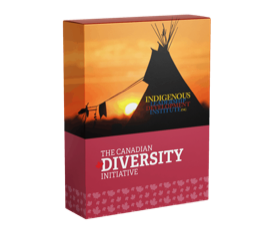Course Catalogue
To view/print documents on this website you will need Adobe Acrobat Reader™.
Click here for bulk pricing
Online Training Programs
Unconscious Bias in the Workplace
Unconscious bias affects everyone. This course explains the concept of unconscious bias, examines how biases in the workplace can affect individuals and organizations, and identifies ways to mitigate these negative effects.
Upon completion of this course, you will:
▪ Understand the concept of unconscious bias
▪ Recognize how biases in the workplace can undermine logical decision-making and create an unfair
playing field where some individuals have unfair advantages over others
▪ Identify ways that individuals and organizations can mitigate the effects of unconscious biases
Respect and Inclusion in the Workplace
Diversity encompasses all of the ways that we are different from each other, including factors like ethnicity, culture, religion, age, gender, sexual orientation, and sexual identity. This course educates participants about acceptable and unacceptable workplace attitudes and behaviours, including discrimination, harassment, and bullying, identifies appropriate ways to respond, and provides practical strategies to support an inclusive workplace environment where everyone feels safe and respected. This course is endorsed by Safety Services Canada.
Diversity and Inclusion Training for Volunteers
Volunteers are the public face of community events, not-for-profit organizations, and the corporate sponsors that support those events and organizations. It is important for diverse groups to be represented in volunteer workforces, and for members of diverse groups to be treated respectfully by volunteers at all times.
Diversity and Inclusion Training for Volunteers is an online training course that educates volunteers about diversity and inclusion, examines both acceptable and unacceptable attitudes and behaviours, and identifies appropriate ways to respond in situations involving disrespectful behaviours.
LGBTQ2+ Diversity and Inclusion in the Workplace
This course is an ideal foundational step for organizations seeking to create an LGBTQ2+ inclusive workplace culture. Participants learn about the history, current issues, and terminology associated with LGBTQ2+ identities, and the workplace challenges faced by individuals who are LGBTQ2+.
Interactive exercises offer opportunities for learners to evaluate the existing workplace environment and explore ways to support an inclusive culture where everyone feels safe, respected, and valued.
Most participants will be able to complete training in less than one hour.
Neurodiversity in the Workplace
We all experience the world in different ways. Neurodiversity is a term that recognizes and respects those differences, including how people think, process information, and interact with others. This self-paced online course helps participants deepen their awareness of neurodiversity, focusing on ways to support, include, and appreciate neurodiversity in the workplace.
Conduct and Inclusion Training for Young Athletes
Canadian Indigenous Culture Training - Truth and Reconciliation Edition
This edition has been designed in accordance with the Truth & Reconciliation Commission of Canada’s Calls to Action (2015) and includes information about the history and legacy of residential schools, the United Nations Declaration on the Rights of Indigenous Peoples, Treaties and Indigenous rights, Indigenous law, and Indigenous-Crown relations. This course has been developed by the Indigenous Leadership Development Institute of Canada.
How to Reduce Unconscious Bias in Your Hiring Practices
How to Reduce Unconscious Bias in Your Hiring Practices
Course Overview:
This course is for anyone with hiring and talent acquisition responsibilities, including HR professionals, business leaders, managers, and supervisors. It will deepen your understanding of unconscious bias and help you develop and implement strategies to reduce the effects of unconscious bias in your hiring and talent acquisition processes.
You Will Learn How To:
-
Recognize assumptions, attitudes, and actions that may be rooted in unconscious biases.
-
Create clear, objective job criteria that are based on the requirements of the role.
-
Develop and implement a recruitment process that minimizes the impact of unconscious biases.
-
Evaluate job candidates equitably.
.jpg)


.jpg)
 (1).jpg)




